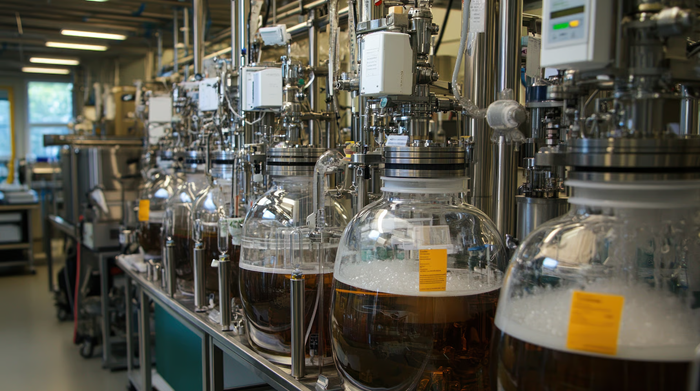Labman is proud to be involved in a groundbreaking Canada-UK collaboration to revolutionize biopharmaceutical manufacturing using cutting-edge automation, AI, and real-time process control.
 Image Credit: Labman
Image Credit: Labman
The AI-optimized BALANCE (Bioreactor Automation for Learning and Adaptive Networked Control of Experiments) platform will bring together the combined expertise of CPI (UK), Basetwo (Canada), Nicoya (Canada), and Labman Automation (UK), supported by a $2 million grant from Innovate UK and the National Research Council of Canada Industrial Research Assistance Program (NRC IRAP).
At the core of this 20-month collaboration is the creation of a demonstrator platform that integrates smart bioreactor technologies, real-time sensing, AI-driven optimization, and advanced modular automation. Labman will design and build a fully automated modular sampling system, enabling molecular analysis of cell cultures with minimal manual intervention. This will seamlessly integrate with Nicoya's Alto SPR biosensor to deliver instant feedback on yield and quality, providing adaptive control over the process in real-time.
The BALANCE system is underpinned by Basetwo's digital twin technology, a machine learning platform that interprets real-time data from biosensors and bioreactors to make intelligent decisions about process conditions. This closed-loop control system enables continuous optimization, predicting outcomes and reducing the need for costly lab-based testing.
This is the next step for biologics and drug manufacturing, integrating Industry 4.0 approaches for bioprocessing. By combining advanced sensing, AI and automation, we aim to accelerate process development, improve consistency, and create smarter, more efficient biomanufacturing workflows."
Tom Smith, Head of bioprocess automation, Labman
By streamlining upstream bioprocessing and enabling dynamic control, this project aims to improve yield, scalability, and speed to market for biologic therapeutics. CPI will lead system validation, ensuring the platform is not only technically robust, but scalable and commercially viable.
This collaboration marks a major step forward in the digitization of biologics manufacturing. For Labman, it's another exciting opportunity to demonstrate how intelligent, flexible automation can transform complex scientific processes, and we're thrilled to be at the forefront.